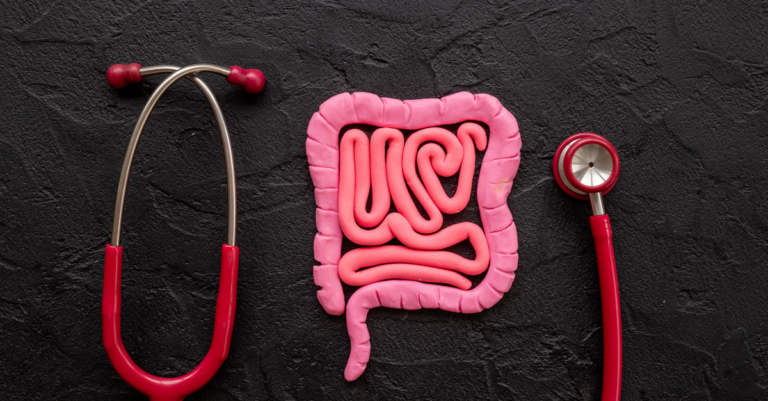Fix Your Thyroid Issues now! Did you know that a tiny, butterfly-shaped gland nestled in your throat is responsible for producing and regulating some of the most important hormones in your body? This significant part of your body is called the thyroid, and while it’s small, it plays a big role in your endocrine (hormone) system.
The thyroid gland produces hormones that interact with other hormones (like insulin, cortisol, estrogen, progesterone, and testosterone). There’s still a lot we have to learn about how the endocrine system works, but knowing how intimately all hormones communicate with each other, it’s no wonder so many symptoms and diseases are tied to a poorly performing thyroid!
How does the thyroid gland work?
Almost all of the hormones the thyroid produces are in an inactive form called thyroxine, or T4. Most of the active thyroid hormone, triiodothyronine (or T3), comes from the conversion of T4 to T3 in various parts of your body, including liver, gut, brain, and muscles.
The “active” T3 is then able to regulate many functions in the body including energy production and regulation of metabolism. When all the systems in your body are working well, the right amounts of T4 and T3 are produced. But if something is having a negative impact on your thyroid or other organs, it can cause a disruption in your hormone system and may cause a number of different symptoms.
Some of the factors that can start to damage a previously healthy, functioning thyroid are: nutritional imbalances, toxins, allergens, infections, and stress. All of these can be problematic and can lead to glandular dysfunctions, and potentially wider spread systemic disease.
What happens when the thyroid can’t function normally?
When the thyroid is compromised, the body is unable to produce or convert the right amounts of thyroid hormones. Consequently, we experience disorders such as hypothyroidism, hyperthyroidism, and thyroid cancer. In fact, thyroid diseases are highly prevalent in North America with an estimated 20 million Americans and 1 in every 10 Canadians having some form of thyroid disease. Because thyroid conditions are tied to so many different symptoms, up to 60% of people living with thyroid disease may be totally unaware of their condition, with women being 5-8x more likely to be affected than men. It is estimated that 1 in every 8 women will suffer from a thyroid disorder at some point during her life.
A poorly functioning thyroid can also be the cause of many less obvious disorders including acne, autoimmune diseases, eczema, fibromyalgia, gum disease, irritable bowel syndrome, and infertility. Because the thyroid is linked to almost every bodily function, symptoms are wide and varied, making it more difficult to identify the thyroid as the root cause of the issue(s). As a result, many people are misdiagnosed and treated for other conditions before the thyroid is every considered or explored.

Hypothyroidism
A number of symptoms often point to an underactive thyroid, or what is called “hypothyroidism.”
Lethargy or fatigue, foggy thinking, depression, weight gain even if you’ve been exercising and eating well consistently, persistently rough/scaly skin and/or dry/tangled hair that are unresponsive to treatments, hair loss (particularly in women), sensitivity to cold, an inability to warm up in a sauna or to sweat during exercise, and a consistently low basal body temperature.
Hyperthyroidism
Some symptoms of hyperthyroidism include feeling restless, nervous, or emotional, poor sleep quality, fatigue, muscle weakness, difficulty concentrating, frequent bowel movements, disappearance of or irregular menstruation, weight loss, rapid, forceful, or irregular heartbeat, eye problems (associated with Graves’ disease) or swollen thyroid/goiter.
Knowing how important the thyroid is to overall health, it’s imperative to understand how it works (regardless of whether or not you currently have a thyroid disorder) so that you can keep your endocrine system and your body functioning optimally.
Thankfully, you can help maintain your thyroid health naturally!
When it comes to managing the optimal function of your hormones, the building blocks are almost always found first and foremost in nutrition.
To maintain a healthy thyroid, first make sure you’re maximizing your nutrition by:
- Try a Gluten-free, Dairy-free Diet: Most people go gluten and dairy free only when there is an obvious sensitivity to either type of food. Sensitivity to gluten and dairy is much more subtle when it comes to the thyroid and often goes unnoticed. The inflammation caused by these foods can lead to leaky gut syndrome which can cause the body to accidentally attack the thyroid instead of the food particles it’s trying to destroy. Removing these foods can be critical to maintaining good thyroid health, especially if there is an autoimmune issue at play.
- Leave Behind the Unfermented Soy: The proteins in soy can be potent anti-thyroid agents that can heavily affect the way the thyroid functions. Be extra careful with baby formula, too. The consumption of soy formula has been linked to autoimmune thyroid disease in infants. This doesn’t mean that all soy is off the table. You can keep enjoying fermented soy foods like natto, miso, and tempeh. It’s the unfermented soy products like soy milk, and soy cheese that should be avoided.
- Keep an Eye on Your Iodine: Iodine is present in almost every organ and tissue and has a direct effect on the thyroid. But iodine is not good for all thyroid cases! It is not recommended if you have thyroid antibodies (Hashimoto’s Thyroiditis) – so be sure to get a full thyroid panel run! We do the the blood work for this! Chemical agents in commercial food ingredients unfortunately tend to lessen iodine. Daily exposure to chemicals found in water such as bromine, fluorine, chlorine all negatively impact iodine levels by attaching themselves to iodine receptors in the body. You can see why focusing on consuming enough of this nutrient is so important.
You can increase your iodine levels by:
Choosing to eat organic to minimize exposure to chemical pesticides
-
- Avoiding eating, drinking, or storing food and drinks in plastic containers
- Looking for “no bromine” or “bromine-free” labels on organic whole-grain breads and flours if you eat grains
- Increasing your dietary intake of wild-caught seafood and ocean fish
- Using natural personal care products to minimize absorbing toxic chemicals through the skin
- Look for Foods Containing Zinc and Selenium: Zinc and selenium are two micronutrients that play critical roles in thyroid health. Because they can be toxic in very high doses, it’s best to achieve healthy levels through a carefully balanced diet. Zinc-rich foods include oysters, beef, pork, and chicken, while selenium rich foods include brazil nuts, fish, and liver.
- Practice Effective Stress Management: Stress and hormone health are inextricably linked. Make sure you’re taking time to meditate, relieve stress, and get your mindset on track so you can enjoy the benefits of overall health.
Thyroid Supplementation
Often a traditional thyroid prescription would be thyroxine for example that would affect one’s TSH (thyroid stimulating hormone). There is also desiccated thyroid which affects free T3 and T4 instead of TSH. We would consult with you about the pros/cons of these options. ..And we can prescribe desiccated thyroid at our clinic.
You can gain control over your health by learning how to manage and maintain your hormones through nutrition, lifestyle, and medical support. If you think you may be suffering from a thyroid disorder, please take time to book an appointment to visit our clinic.
We want to help you stay on top of your health! Testing and comprehensive hormonal assessments are available.
Call or email us at (519) 954-7950 or info@HealthSourceIMC.com.
To your best health!
The Team at HealthSource Integrative Medical Centre
References:
https://articles.mercola.com/thyroid.aspx
https://www.thyroid.org/hypothyroidism/
J Clin Endocrinol Metab. 2015 Aug 25:jc20152222. Epub 2015 Aug 25. PMID: 26305620


